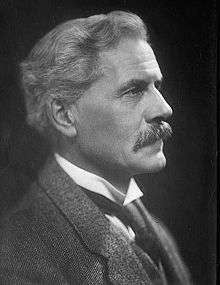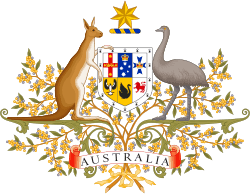Champagne socialist

"Champagne socialist" is a pejorative political term originating in the United Kingdom.[1][2]
The phrase is used to describe self-identified socialists, whose comfortable upper middle-class lifestyles are thought to contradict their political convictions; this is typified by their supposed consumption of the luxury drink Champagne. It is a popular epithet that implies a degree of hypocrisy, and it is closely related to the concept of the liberal elite.[3][4]
It is broadly similar to the American terms Learjet liberal, limousine liberal or latte liberal, and to idioms in other languages such as the Spanish Izquierda caviar, the French Gauche caviar, the German Salonkommunist, Brazilian Esquerda Caviar or Socialista de Iphone, and the Italian Radical chic. Other related terms include Hampstead liberal, Gucci socialist, and in Ireland smoked salmon socialist.
United Kingdom

In the UK, the term typically refers to affluent Labour Party supporters, who stereotypically live in Inner London and read The Guardian newspaper. Right-wing critics often use the term to disparage political opponents; the champagne socialist espouses leftist views while enjoying a comfortable lifestyle, implying that left-wing views are really only held by privileged people.[2] This usage of the term has been criticised by the writer and broadcaster Caitlin Moran as a fallacious argument, because it assumes that only those who are poor can express an opinion about social inequality.[5]
The term has also been used by left-wing commentators to criticise centrist views. For example, some traditional left-wingers regard the first Labour Prime Minister Ramsay MacDonald as a "champagne socialist" who betrayed the Labour movement. MacDonald's lavish lifestyle and his mingling with high society is supposed to have been a corrupting influence which led to the end of the Labour Government in 1931 and the formation of the National Government.[2] More recently, the epithet has been levelled at supporters of the New Labour movement which brought Tony Blair to power in 1997.[6]
In an article about Oscar Wilde's 1891 essay "The Soul of Man under Socialism", political commentator Will Self expressed the view that Wilde could be considered an early champagne socialist because of his aesthetic lifestyle and socialist leanings.[7]
The writer and Labour supporter John Mortimer, when accused of being champagne socialist, said that he preferred to be thought of as "more a Bollinger Bolshevik".[8]
In cult TV series Absolutely Fabulous (series 4) episode 1 ("Parralox"), Saffron is offered a job with New Labour. While she is at pains to avoid being seen as a champagne socialist, her grandmother Mrs. Monsoon considers the family to be 'Bolly Bolsheviks'.
The label has also been applied to the Labour politician Geoffrey Robinson MP on account of his large personal fortune.[9][10] Singer Charlotte Church has described herself as a "prosecco socialist",[11] referring to the increasing popularity and lower price range of non-champagne sparkling wines such as prosecco and cava.
Australia and New Zealand
In Australia and New Zealand, the variant "Chardonnay socialist" was used when Chardonnay was seen as a drink of affluent people.[12][13][14]
Australian left-wing "true believers" leveled the term at supporters of the failed republic referendum of 1999, where the vote was split not along conventional party lines but very much along socio-economic divides, with the rich overwhelmingly supporting the change while the less well-off were opposed. Staunch Australian right-wingers, on the other hand, leveled it at those who support such things as government funding for the arts, free tertiary education, and the ABC – all causes which are described by critics as "middle-class welfare."[15]
By the 90s chardonnay had become more generally consumed [14] and it is now the most dominant white wine varietal produced in Australia [16] so its association with elitism has faded.
See also
References
- ↑ "Champagne socialists 'not as left wing as they think they are'". The Telegraph. 14 Jul 2010. Retrieved 5 May 2013.
- 1 2 3 Rooksby, Ed (16 April 2013). "So what's the problem with champagne socialism?". The Guardian. Retrieved 5 May 2013.
- ↑ New York Times
- ↑ "Ken Follett: Novel activist". BBC News. BBC. 3 July 2000. Retrieved 25 November 2012.
Taking "Champagne socialist" jibes on the chin - "I've always been enthusiastic about Champagne" - the Groucho club member is no fair-weather friend of the party.
- ↑ Moran, Caitlin. Moranifesto. Ebury Publishing. ISBN 9780091949051. Retrieved 7 February 2017.
- ↑ Laville, By George Jones and Sandra (3 July 2000). "How Blair's New Labour went flat for champagne socialists". The Daily Telegraph. Retrieved 8 February 2017.
- ↑ Self, Will (1 May 2015). "Will Self: Oscar Wilde, champagne socialism and why I'm voting Labour". The Guardian. Retrieved 8 February 2017.
- ↑ Jones, Ted. Florence and Tuscany: A Literary Guide for Travellers. I.B.Tauris. p. 189. ISBN 9780857731272. Retrieved 7 February 2017.
- ↑ "Robinson: The ultimate champagne socialist". BBC News. 23 December 1998. Retrieved 7 February 2017.
- ↑ Sully, Melanie A. (2000). The new politics of Tony Blair. Boulder: Social Science Monographs. p. 75. ISBN 9780880339858.
- ↑ "'Champagne socialist' Charlotte Church 'more of a prosecco girl'". 12 May 2015 – via www.bbc.co.uk.
- ↑ "Australian Words: C-G". Australian National Dictionary. Australian National University - Australian National Dictionary Centre. Retrieved 2008-09-11.
- ↑ AAP: Australian Associated Press (25 January 2003). "Have a Captain Cook at this new Strine book". The Age. Retrieved 2008-09-11.
- 1 2 Dale, David (12 November 2003). "Raise a glass to the big white". Sydney Morning Herald. Retrieved 2008-09-11.
- ↑ Rolfe, Mark (2007). "Days of Wine and Poseurs: Stereotpypes of Class, Consumption & Competition in Democratic Discourse" (PDF). A Paper Delivered to the Australasian Political Studies Association Annual Conference 24th-26th September 2007, Monash University. Monash University. Archived from the original (PDF) on 8 August 2008. Retrieved 11 September 2008.
(from pages 24-5) From his first day in parliament as leader in March 1995 until the election, Howard courted the strong public perceptions of Keating arrogance that were evident in party polling. This was the context to the ad hominem of ‘chardonnay socialist’ that was extended to any Labor speaker and to the whole ALP in an attempt to undermine their ethos through associations with self-indulgence, selfishness and lack of concern for the people. Frequent deployment of these terms by the media provided a further convincing context for this rhetoric. Kim Carr was called a ‘Bollinger Bolshevik’ by Vanstone (Commonwealth Parliamentary Debates [CPD], Senate, 13 May 1997) and there was ‘Chardonnay Cheryl’ Kernot, the ‘shadow minister for the selfish “me generation” yuppies’ with her ‘list of hors d’oeuvres for the next caucus radical chic soiree’, said Richard Alston (CPD, Senate, 4 March 1998; 23 March 1998; 30 March 1998). She could be seen with Mark Latham, said David Kemp, ‘on the patio sipping their wine, complaining about the excesses of capitalism’ (CPD, Senate, 22 October 1997).
- ↑ https://www.adelaide.edu.au/press/titles/austwine/austwine-ebook.pdf
External links
| Look up champagne socialist in Wiktionary, the free dictionary. |
